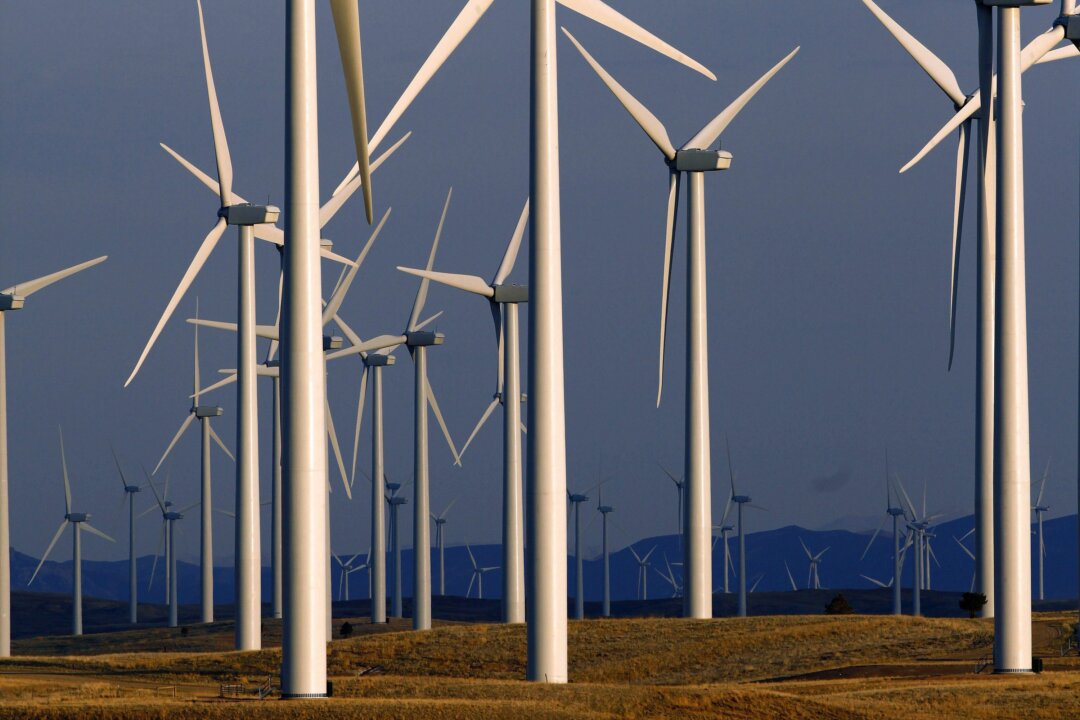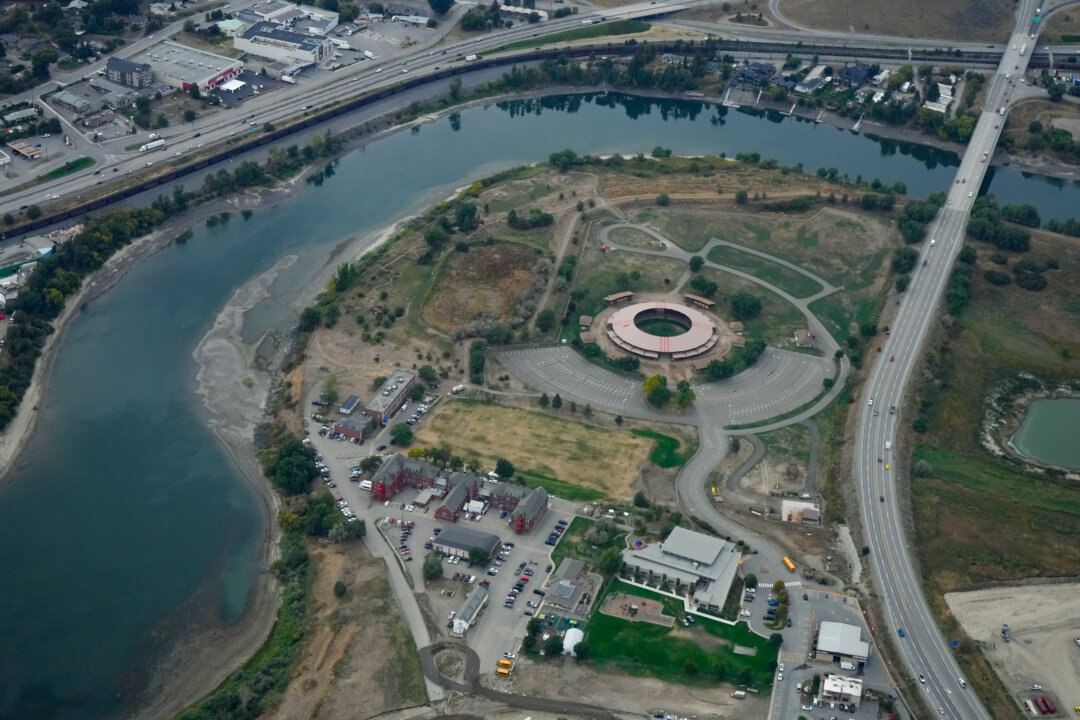
Demand for Land Remains Obstacle for Transition to Renewable Energy
A non-financial consideration in Canada’s transition to renewable energy is the large amount of land needed compared to other energy sources, like natural gas, a new Fraser Institute report says.
The report notes that while the cost of renewable sources has decreased, the challenge of land consumption—or how much space is needed for wind and solar power generation—remains an obstacle.
“When measured in 2010, for example, renewable energies generated 525 GW of power, but consumed 398,000 square kilometers – a stark contrast with natural gas power production which generated 3.53 Terawatts of power while consuming only 1,800 square kilometers of land area,” wrote author Kenneth P. Green, a senior fellow with the Institute.
Mr. Green also said that more mines would be needed to get out of the ground the materials required for an energy transition to renewables.
Building wind turbines requires materials like iron ore, cement, and nonrecyclable plastic for the blades, Mr. Green wrote.
Solar hardware requires even more steel, glass, and concrete than wind turbines do, he said.
Mr. Green concluded that the mining industry will need to expand to meet the demand, causing further land disruption.
“Land disruption for mining, and the needed increase in mining of metals also remains a significant barrier to the clean energy transition,” he said, noting wind, solar power, and electric vehicles “require massive increases in the production of a number of metals which require extensive mining and refinement, and the movement of massive amounts of material in the process.”
Additionally, he said that the country could see an economic decline by moving to sources that “exhibit a lower Energy Return on Investment” as renewable sources supply lower levels of electricity per unit cost.
“Societies which direct resources into lower-return endeavors, such as wind- and solar power forsake the economic gains that would accrue from cleaving to energy sources that provide a higher economic return on investment, economic gains that are necessary for a society to prosper,” Mr. Green wrote.
Prime Minister Justin Trudeau’s government developed Clean Electricity Regulations legislation that would see net-zero emissions by 2035. A draft of the regulations was released in August 2023 and was updated in February 2024.
Changes include an annual emissions limit for each power-generating unit, which will allow multiple units within the same jurisdiction to pool the emissions together.
“The improvements under consideration would enhance the flexibility for provincial operators to continue to ensure reliable and affordable power while maintaining Canada’s ability to achieve its emissions reduction goal,” the government said.
A final draft of the regulations is expected later this year.
Demand for Land Remains Obstacle for Transition to Renewable Energy, Report Says: https://www.theepochtimes.com/world/demand-for-land-remains-obstacle-for-transition-to-renewable-energy-report-says-5623402?utm_campaign=socialshare_email&utm_source=email
No Excavations Done Yet at Kamloops Residential School as First Nation Provides Update on ‘Complex’ Investigation
"I am honoured to speak directly with Albertans about the road ahead for our province, the choices we face together, and how you will have the final say in shaping Alberta’s future within a strong and united Canada."
https://x.com/ABDanielleSmith/status/2024661280163058030

















